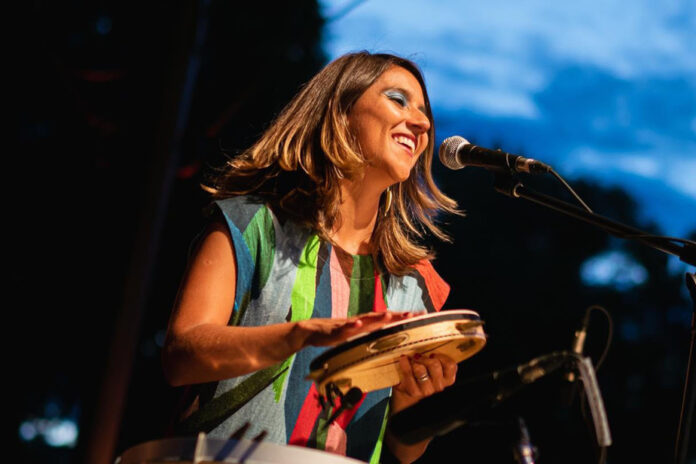She is from northern Brazil, they are from the south, but it was in Montreal that these three musicians were brought together by the pleasure of playing forró. Accustomed to La petite marche, rue Saint-Denis, Forró de Lá performs for free this Wednesday as part of the International Festival Nuits d’Afrique.
It is not the famous saudade that one feels when listening to forró, quite lively and dancing music typical of the northeast, that is to say the northeast of Brazil. Nostalgia, however, played a role in the birth of the group Forró de Lá, led by percussionist Lara Klaus, who arrived in Quebec only four years ago.
“I missed playing forró. I played a lot of it in Brazil, with great artists, and this music is really important in my life”, explains the young woman from Recife, who formed her group with accordionist Dominique Poirier, flautist and percussionist Gabriel Schwartz , as well as guitarist and singer Rodrigo Simoes.
Less pop than samba funk, less swaying than bossa nova, the forró displays its traditional tunes with its accordion impulses and makes all Brazilians dance to rhythms with entertaining names like baião, arasta pé and xote.
It’s a bit like this that Forró de Lá was formed in Quebec, by the way: its members met while playing in various groups and events, until they wanted to form one that would devote themselves to interpreting classics of the genre. “Our concerts are first and foremost moments of sharing,” says Lara Klaus. It’s an opportunity for us to speak Portuguese, to dance, to have fun. »
Forró is not carnival music, she says, but music associated with Saint John, celebrated with pomp around June 23 in Brazil. Its performers sing about love, but above all about the life of the little people of the northeast and their more rural than urban reality. She talks a bit about agriculture and animal husbandry, nature, the connection to the land, “in words that only exist in this region,” says Lara Klaus.
There is, in this sometimes arid territory, a “culture of resilience”, she adds. Its rhythms are lively, but the forró exudes a down-to-earth je ne sais quoi that distinguishes it in particular from the samba, which has something more sensual. “With Gabriel and Rodrigo, we added things to our music that you don’t usually find in forró: instrumental parts, influences of chorro and maracatu”, also specifies the musician.
Important detail: the group Forró de Lá from Montreal is not the same as the ensemble of the same name which released an album in 2018 that is easily found on online streaming platforms. The musicians here haven’t recorded anything yet and prefer to develop their sound on stage before making a record. “To hear us, you have to come and see us!” “says Lara Klaus. The invitation is issued.















